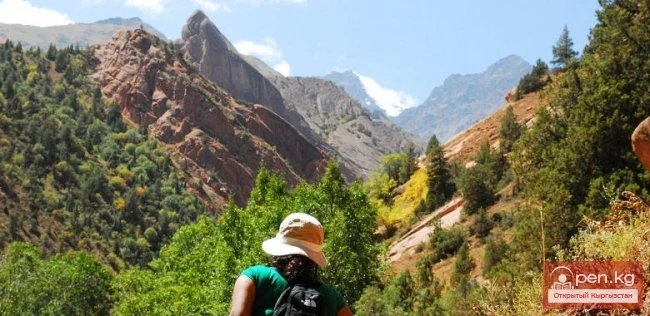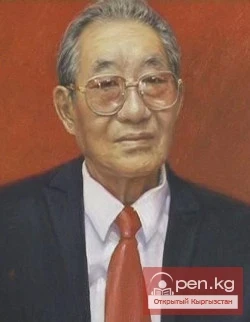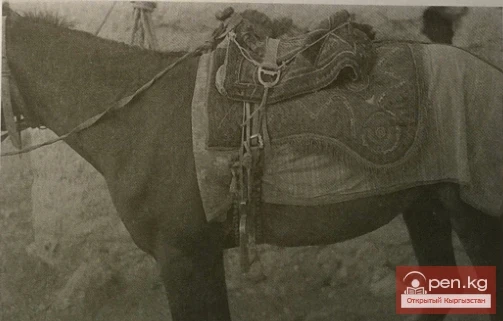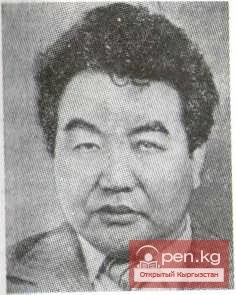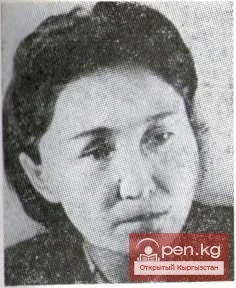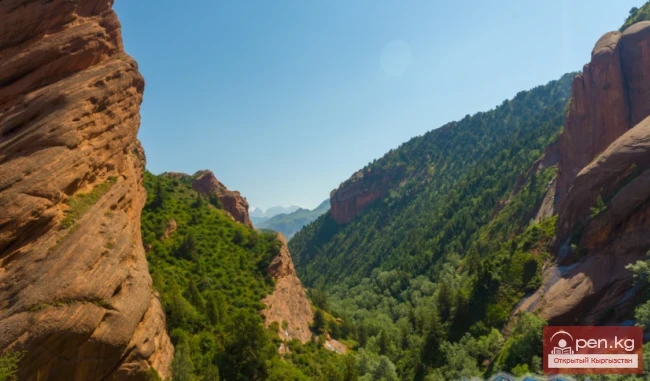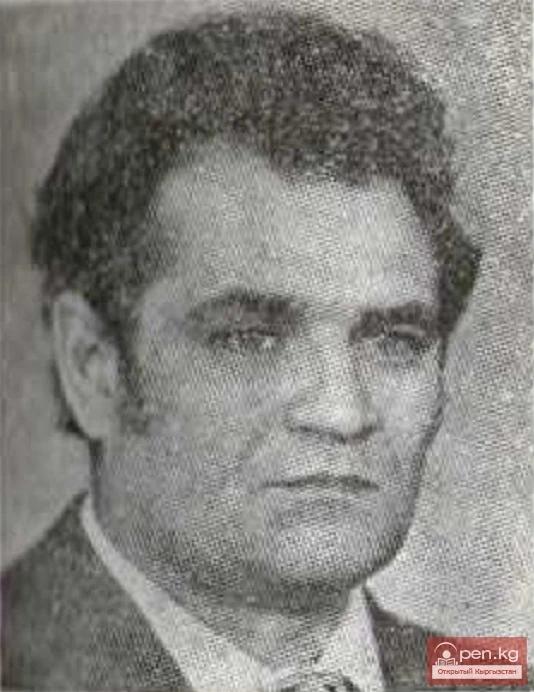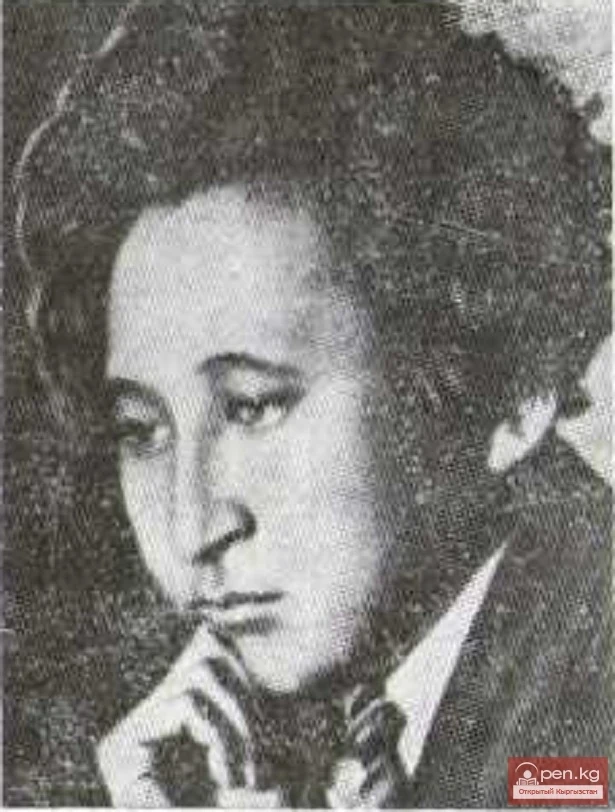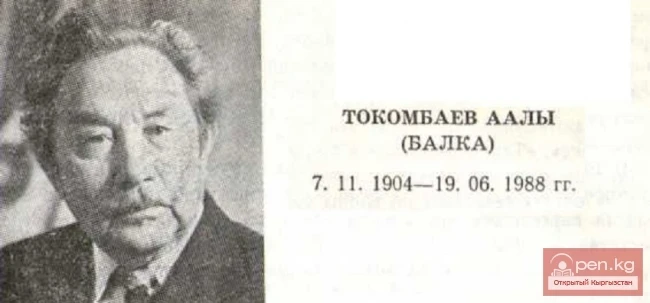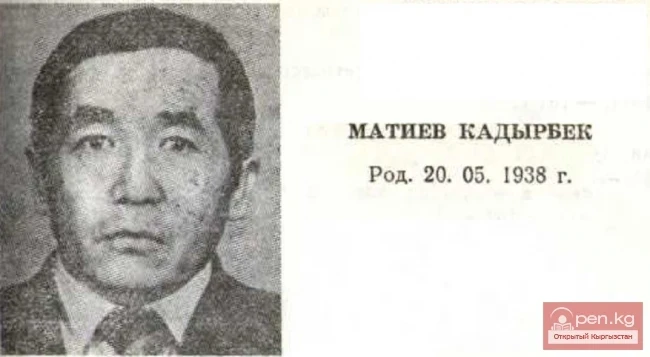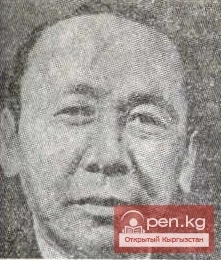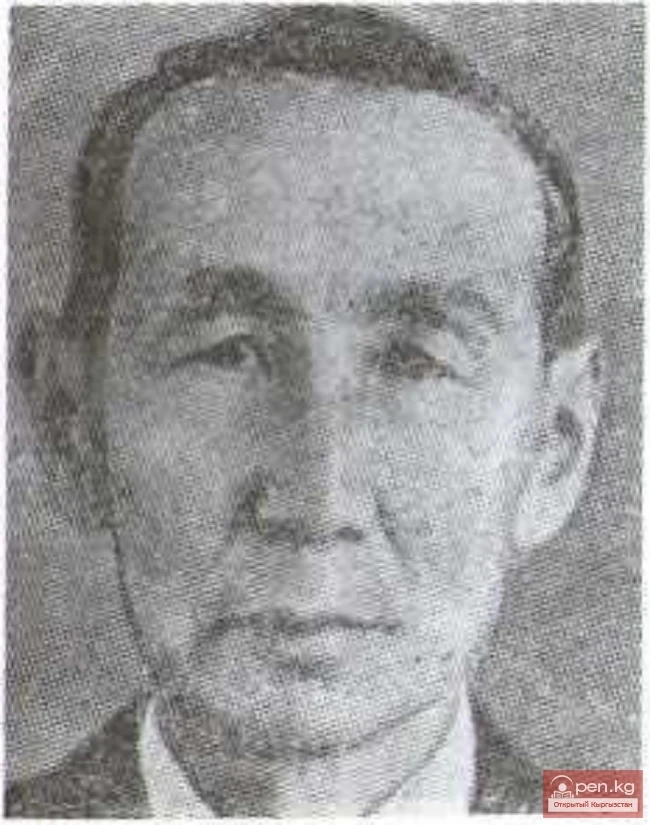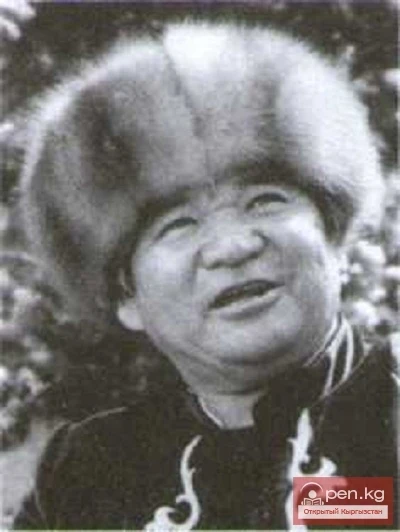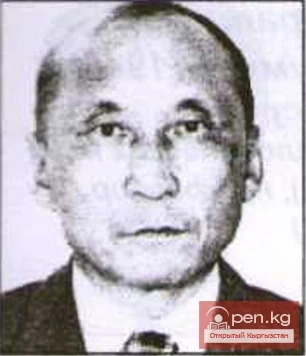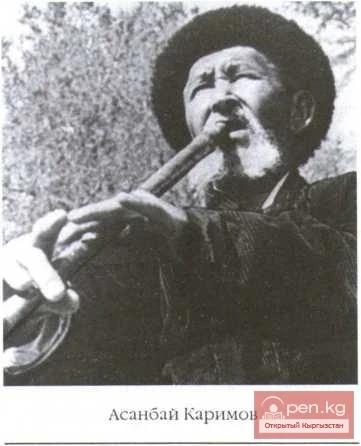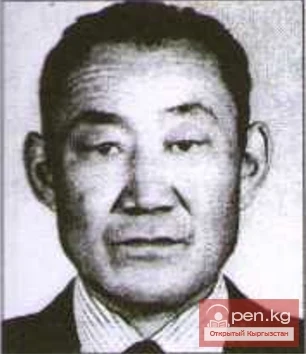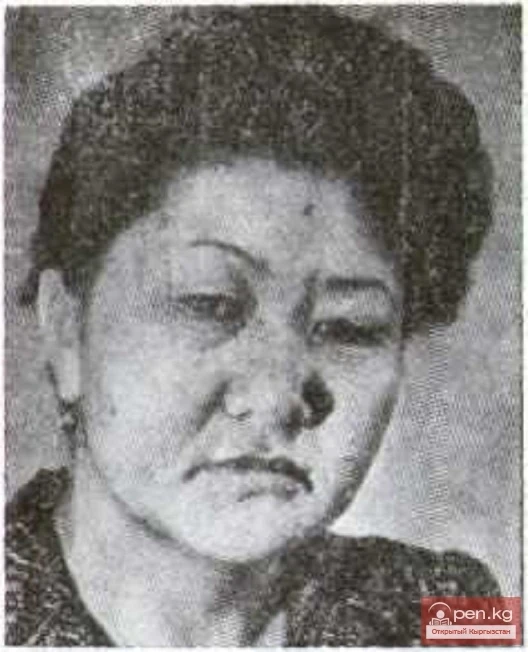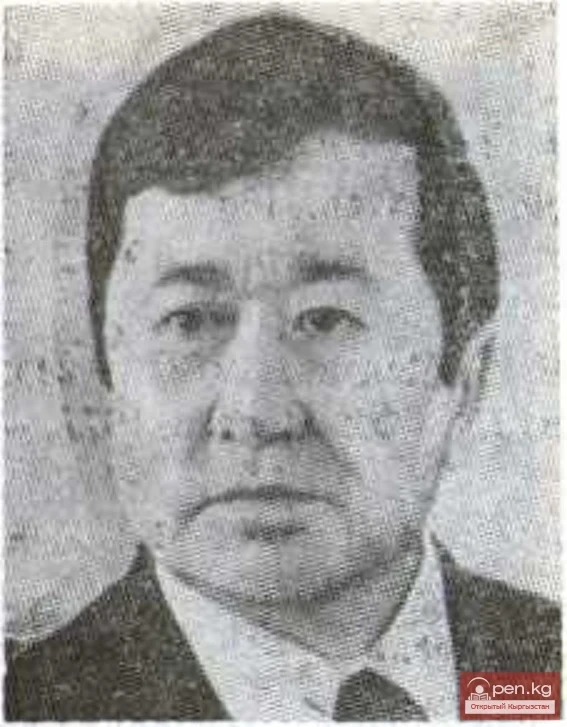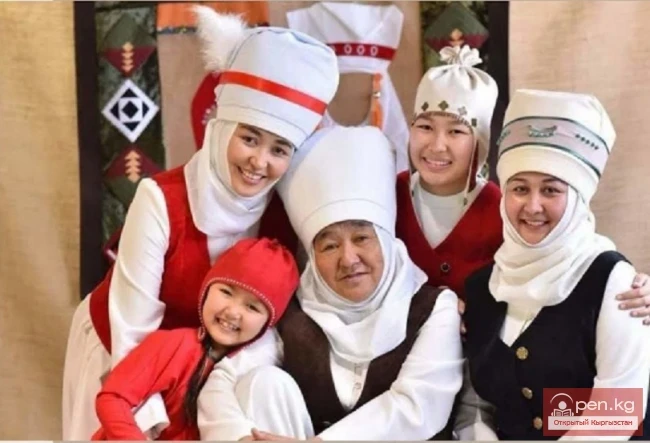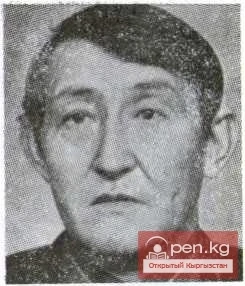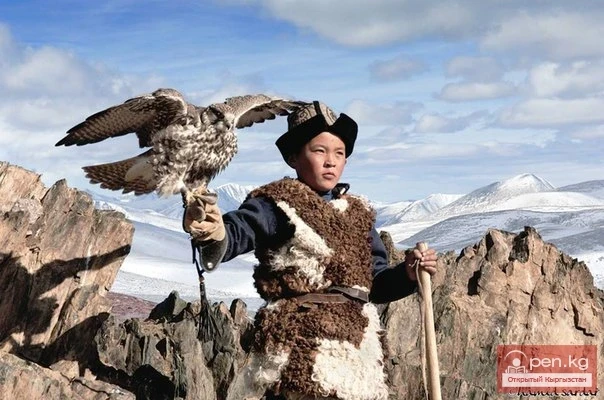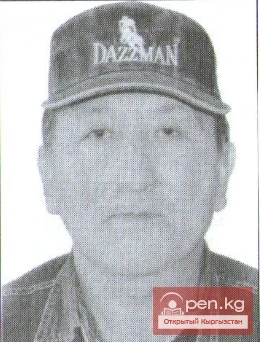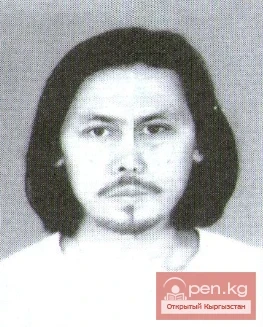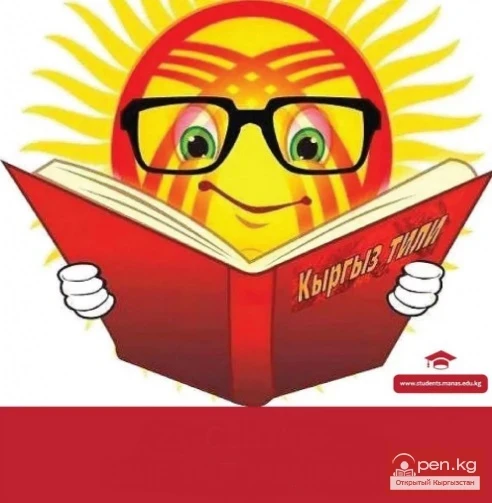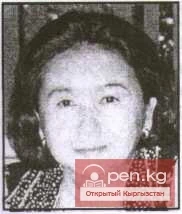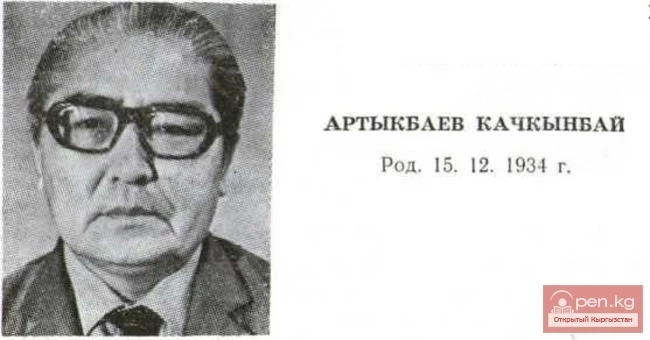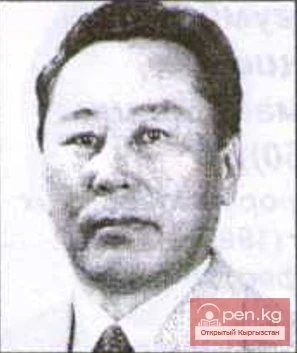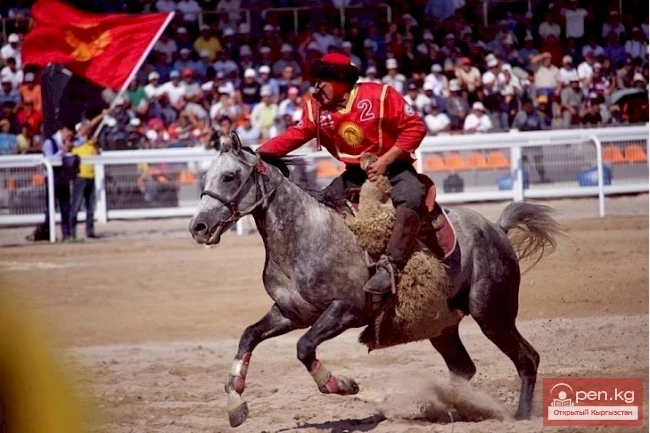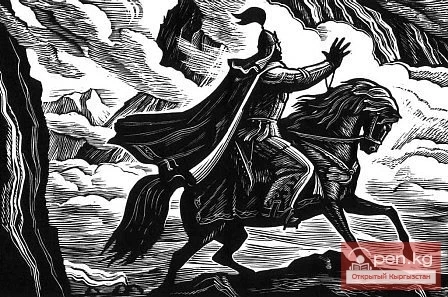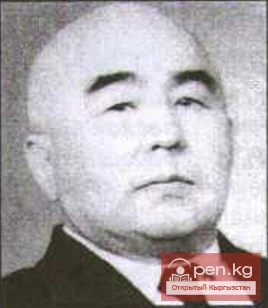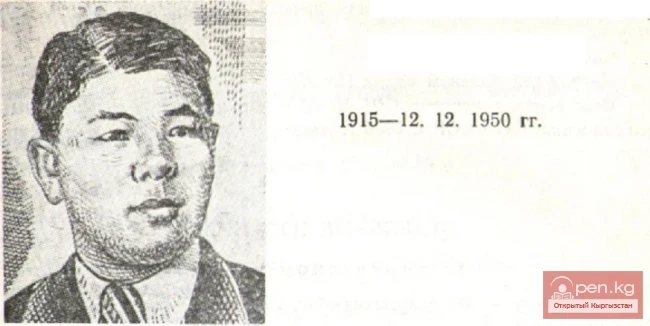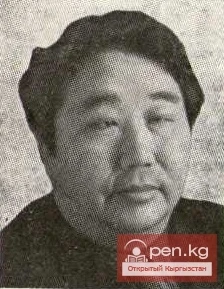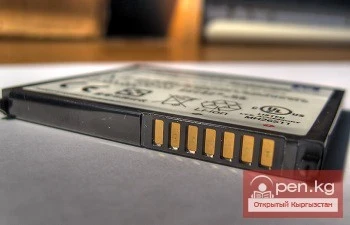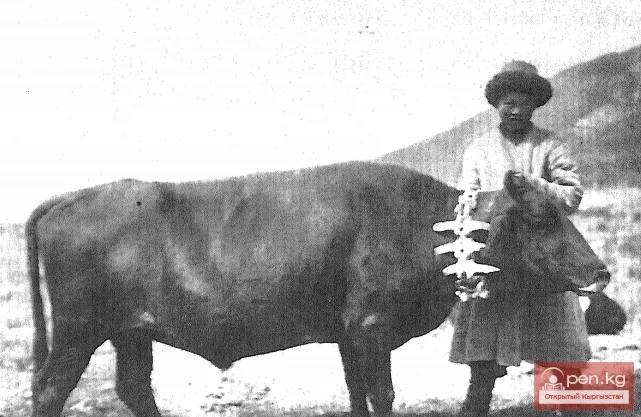
Customs during Calving
Talas
kainazar
After calving, they prepare uus kojo39. Everyone eats in the presence of the calf. They take a spoon of kojo, pass it under the calf, and say: "Kulou, kulou! If you go forward, the wolf will eat you; if you stay behind, the thief will steal; do not leave the middle." If this is not done, the calf will always moo.
solto - karamoin
On the very first day of calving, they prepare uus kojo, invite neighbors, and treat them to this porridge. The guests tell the host to make kulou for his calf. Someone among the young men takes a bowl of kojo and a spoon, scoops some porridge, and touching the head, back, and hindquarters in turn, says: "Kulou, kulou!" and so on.
Animal Diseases, Marks
Alamedin
solto-bolokbay
In case of sheep diseases, they go to an anthill or a cemetery and spend the night there with them. Kazieti bar — this is sacred.
bugu
They shear the mane, leaving a kokul41 and chooktuk42. The tail is trimmed a little in a ring at the base (? — F.F.), and for the mare (? — F.F.) in a ring at the bottom, leaving a small tuft at the end. The same applies to the kunan and baytal. The byshty are no longer sheared.
Horse Tack
Bokhcho — a mat that women arrange in front of the saddle and on which a cradle with a child is placed during travel. It can be made from anything, for example, from a robe or blanket.
Kyopchuk — a sheepskin mat on the saddle, which was previously used by the Kyrgyz instead of the current kёрпёчё. It was nailed to the saddle on the sides in front, two to three layers thick, with two large nails with round plates.
Kёрпёчё made of sheepskin was only placed on the women's saddle.
Zheldyk — borrowed from the Sarts; previously, there was only ter dik, as well as tokum (solid) — the latter has now been replaced by zheldyk.
Instead of basmaila, there was byshtan, which differed in that two narrow straps extended from it, which wrapped around the front and rear bows and held it and kyopchuk more securely.
Nokto also did not exist before.
solto
Wooden saddles were covered (upholstered) with sheepskin. The sheepskin was shaped like ter dik but smaller than tokum.
Byshtan, olong, zhyrim — the previous girths for the saddle. Zhyrim — a strap (under the belly), olong — the end of the strap, olong-bash — iron buckle, byshtan (g) — a triple strap passing through the saddle: one holds the saddle itself, while the other two, wrapping around the bows, hold the sheepskin. Kash — the bows of the saddle, kaptal — the shelves.
Comments:
39 Boiled cow colostrum with flour and salt.
40 See note 14.
41 Comparable to kyokul in children (see the section "Childbirth Rites and Child Rearing").
42 Chooktuk — (from choo — a disease of camels, manifested by cracking of the sole), apparently, during the shearing of the mane, part was left to get rid of the disease or to protect against it.
Cattle among the Kyrgyz (General Information)



